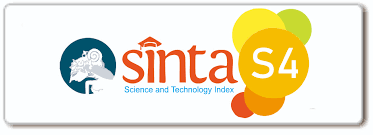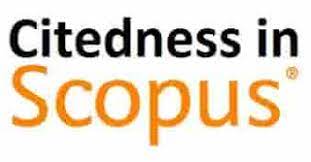Ibn Khaldun and John Locke’s Thoughts, Reframing Contemporary Education World Order
DOI:
https://doi.org/10.59373/attadzkir.v3i2.53Keywords:
Ibn Khaldun education, John Locke education, Islamic Thought, Comparative EducationAbstract
Exploring two international philosophers’ scholarship with lasting effect on education theory through a comparative qualitative study would help to synthesize alternative tools and epistemology to address contemporary education landscape and human-to-human interaction. Ibn Khaldun’s and John Locke’s intellectual legacy brought revolutionary knowledge based on their empirical observation (Assabiyya & Social Contract) which has inspired various social, political as well as modern education concepts. Indeed, though Ibn Khaldun and John Locke belong to dissimilar schools of thought, they share a number of philosophical and educational ideas deemed to offer new remedies to our current education and cross-cultural interactions by transforming the learner at the center of a new learning world order.
Downloads
References
Abd al-Amir Shams al-Din: The Educational Thought of Ibn Khaldun and Ibn al-Azraq, Dar Iqraa, Beirut, Lebanon, 1984
Abd al-Rahman ibn Khaldun: Muqaddima ibn Khaldun, n.d: Suhail Zakkar, ed: Khalil Shehada, Dar al-Fikr, Beirut, Lebanon, d.t., 7001/1471, p. 235
Augustine, A. (2015). Confessions. Xist Publishing.
Bandura, A. J. (1977). Social learning theory. Englewood Cliffs, NJ: Prentice Hall.
Bao, L. (2011). “Justice is happiness”?—An analysis of Plato’s strategies in response to challenges from the sophists. Frontiers of Philosophy in China, 6, 258–272.
Dai, C. C., & Li, J. Y. (2020). A Comparative Study of Confucian Junzi Education and John Locke’s Gentleman Education. Journal of Literature and Art Studies, 10(11), 1012-1015.
Dewey, J. (1998). The essential Dewey, volume 1: pragmatism, education, democracy (Vol. 1). Indiana University Press.
Durkheim, E. (2005). Durkheim: Essays on morals and education (Vol. 1). Taylor & Francis.
Freire, P. (1996). Pedagogy of the oppressed (revised). New York: Continuum, 356, 357-358.
Halim, H., Aziz, H. S., Suhaimy, K. A. M., Ani, F., Jaes, L., Ahmad, S., ... & Bakar, S. K. S. A. (2018, January). The Principal Thinking Of Ibn Khaldun: An Analysis On The Contribution To The Development Of Contemporary Science. In Proceedings of The International Conference on Social Sciences (ICSS) (Vol. 1, No. 1).
Hernawan, W. (2017). Ibn Khaldun thought: A review of al-Muqaddimah book. Jurnal Ushuluddin, 23(2), 173-184.
History of The Arabs and Berbers and Their Powerful Contemporaries". Second edition, revised by Khalil Shahada, Beirut, Lebanon, Daar al-Fikr Al-Arabi.
Ibn Khaldoun, A. (1988). "Book of Lessons, Record of Beginnings and Events in the
Ibn Khaldun. (2015). The Muqaddimah – An introduction to history by Ibn Khaldun. N. J. Dawood (Ed.). Princeton University Press.
Islam, J. (2016). Contrasting Political Theory in the East and West: Ibn Khaldun versus Hobbes and Locke.
Ismail, N. F. B., & Rahim, A. B. A. (2018). Ibn Khaldun’s Theory of ‘Asabiyyah and Its Impact on the Current Muslim Community. Journalism, 8(6), 287-294.
Locke, J. (1975). An essay concerning human understanding. Oxford: Clarendon Press.
Locke, J. (2008). Some thoughts concerning education: By John Locke. MobileReference.
Pestalozzi, J. H. (1830). Letters of Pestalozzi on the education of infancy: Addressed to mothers. Ca Ren, H., & Abdullah, S. (2023). The Relationship Between Man and Nature in Ibn Khaldun's Muqaddimah. e-BANGI, 20(3), 365-372. rter and Hendee.
Petkova, T. V. (2019). The Idea of Tolerance–John Locke and Immanuel Kant. Open Journal for Studies in Philosophy, 1(1).
Qasserras, M. (2023). Critical Pedagogy in Abu Hamid Al-Ghazali and Paulo Freire: A Comparative Study. International Journal of Research Publication and Reviews, 4, 346-352.
Rambe, A. A., Syahidin, S., Supriadi, U., Fakhruddin, A., Bujang, B., Maswar, R., & Rasyid, A. (2024). The Relevance of Ibn Khaldun's Educational Methods to Contemporary Education. Ahlussunnah: Journal of Islamic Education, 3(1), 10-19.
Rauf, M., Ahmad, M., & Iqbal, Z. (2013). Al-Farabi’s philosophy of education. Educational Research International, 1(2), 85-94.
Roji, F., & El Husarri, I. (2021). The concept of Islamic education according to Ibn Sina and Ibn Khaldun. Nazhruna: Jurnal Pendidikan Islam, 4(2), 320-341.
Rousseau, J. J. (2010). Emile, or, on education: Includes Emile and Sophie, or, the solitaries (Vol. 13). UPNE.
Skinner, B. F. (1971). Operant conditioning. The encyclopedia of education, 7, 29-33.
Turan, S. (2011). Plato's Concept of Education in ' Republic ' and Aristotle's Concept of Education in 'Politics'. EGITIM VE BILIM-EDUCATION AND SCIENCE, 36.
Vygotsky, L. S. (1978). Mind in society: The development of higher psychological processes Cambridge, Mass.: Harvard University Press.
Williams, I. (2010). Plato and education. The SAGE Handbook of Philosophy of Education, 69-84.
Downloads
Published
How to Cite
Issue
Section
License
Copyright (c) 2024 Mohammed Qasserras

This work is licensed under a Creative Commons Attribution-ShareAlike 4.0 International License.

At-Tadzkir: Islamic Education Journal by Perkumpulan Dosen Tarbiyah Islam Indonesia is licensed under a Creative Commons Attribution-ShareAlike 4.0 International License.
Based on a work at http://at-tadzkir.pdtii.org/index.php/tadzkir/index.








